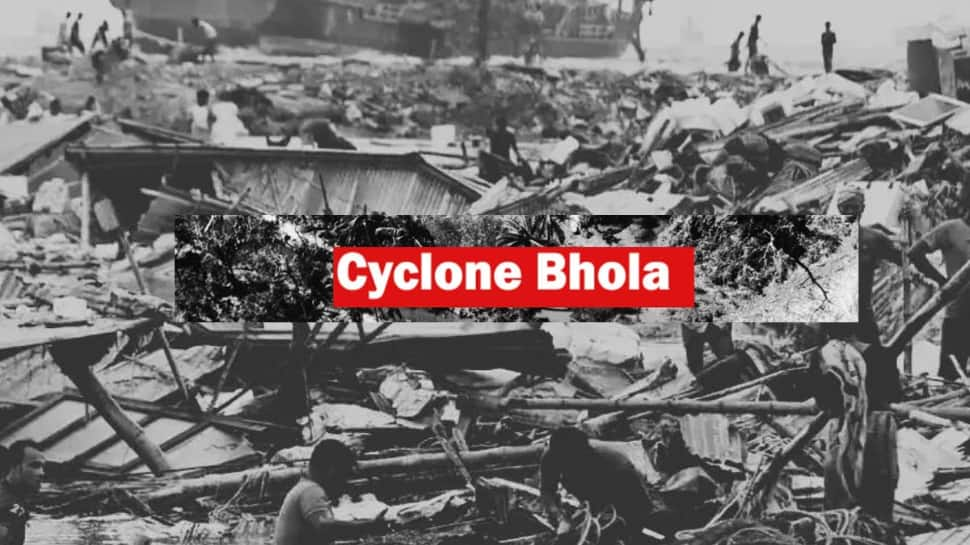A monstrous storm slammed into the coast of East Pakistan, now known as Bangladesh on November 12, 1970, a. It was the world’s deadliest tropical cyclone, according to the World Meteorological Organisation. It killed hundreds of thousands of people and unleashed a chain of events that led to a civil war, a foreign intervention and the birth of a new country. It was a stark example of how shock mobility - the sudden displacement of people by natural disasters or conflicts - can trigger profound political and social changes and alter the course of history.
Worst Natural Disaster Of 20th Century
Cyclone Bhola was a powerful storm that formed in the Bay of Bengal and intensified as it moved towards the low-lying islands and tidal flats along the shore. It brought fierce winds and a massive storm surge that submerged vast areas of land and swept away entire villages. The death toll is estimated to be between 300,000 and 500,000, making it one of the deadliest natural disasters on record. Millions more became homeless and destitute overnight.
The storm exposed the vulnerability and neglect of the region by the Pakistani government, which was based in West Pakistan (today’s Pakistan). The government failed to warn the people adequately about the impending danger.
The government also failed to provide timely and effective relief to the survivors. It claimed that it found about 192,000 bodies and that another 150,000 were missing. But it did not count the tens of thousands who were washed out to sea, buried in the mud or died in remote islands. Some of the worst-hit areas were Tazumuddin, where over 45 per cent of the population of 167,000 died, and Noakhali, where corpses littered the beaches. The people clung to trees for survival but were ripped off by the winds and tides.
Also Read: Biparjoy Landfall In Hours; Here Are Deadliest Cyclones That Hit India In A Decade
The Spark That Ignited A War
The cyclone outraged the political leaders and activists of East Pakistan, who had been demanding more autonomy and rights from West Pakistan for years. They accused the government of indifference and incompetence in dealing with the disaster. They also blamed it for exploiting the resources and suppressing the culture of East Pakistan.
One of the first political leaders to visit the devastated areas was Maulana Abdul Hamid Bhashani, who led the National Awami Party. He called for a jihad or holy war against the injustice and oppression of West Pakistan. He said East Pakistan should become an independent nation.
He was followed by Sheikh Mujib, who led the Awami League, the largest political party in East Pakistan. He inherited the mandate to stand up for the victims of Cyclone Bhola and to demand more autonomy for East Pakistan.
The government tried to appease them by holding national elections in December 1970. The Awami League won a landslide victory in East Pakistan but was denied power by West Pakistan. This sparked widespread protests and violence in East Pakistan. The government responded by launching a brutal military crackdown on March 25, 1971. Sheikh Mujib declared independence on March 26, 1971, before being arrested. This marked the beginning of the Bangladesh Liberation War.
The war lasted for nine months and involved guerrilla warfare, mass killings, genocide and refugee crises. It also drew in India, which supported East Pakistan’s cause and intervened militarily in December 1971. The war ended on December 16, 1971, when West Pakistan surrendered to India and East Pakistan became Bangladesh.
Also Read: Cyclone Biparjoy Live: 54,000 People Relocated In Gujarat
A Historical Turning Point
Cyclone Bhola was not only a natural disaster but also a historical turning point. It exposed the fragility and injustice of the Pakistani state and catalyzed the movement for independence in East Pakistan. It also showed how shock mobility can have far-reaching consequences for people’s lives, identities and aspirations. It can disrupt social order, create grievances and mobilize resistance. It can also inspire solidarity, resilience and transformation.
Cyclone Bhola is still remembered as a tragedy that shaped Bangladesh’s history and identity. It is also a reminder of the challenges and opportunities that shock mobility poses for human development and security.
Catalyst For A Bloody Conflict
The catalyst for this conflict was Cyclone Bhola, which had ravaged East Pakistan a year earlier. The Yahya Khan government failed to provide adequate relief to the millions of victims and tried to downplay the extent of the damage. They blamed the local politicians for exaggerating the situation. But the world media soon exposed their incompetence and indifference. For the entire political leadership of then East Pakistan, the Bhola cyclone was a golden opportunity to capitalize on their political advantage for the upcoming election. This opportunity soon turned into a revolution.
The Bengali people rose up against the oppression and injustice of the West Pakistani regime. They demanded autonomy, if not independence, for their homeland. They fought a bloody war that shook the very foundation of Pakistan. That eventually led to foreign intervention and the birth of a new nation: Bangladesh. This violent change is a stark reminder of the profound societal and political disruption that can result from a natural disaster.
















